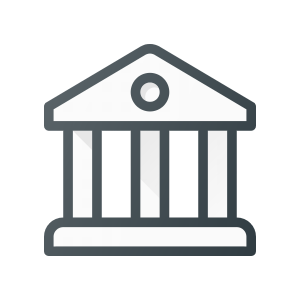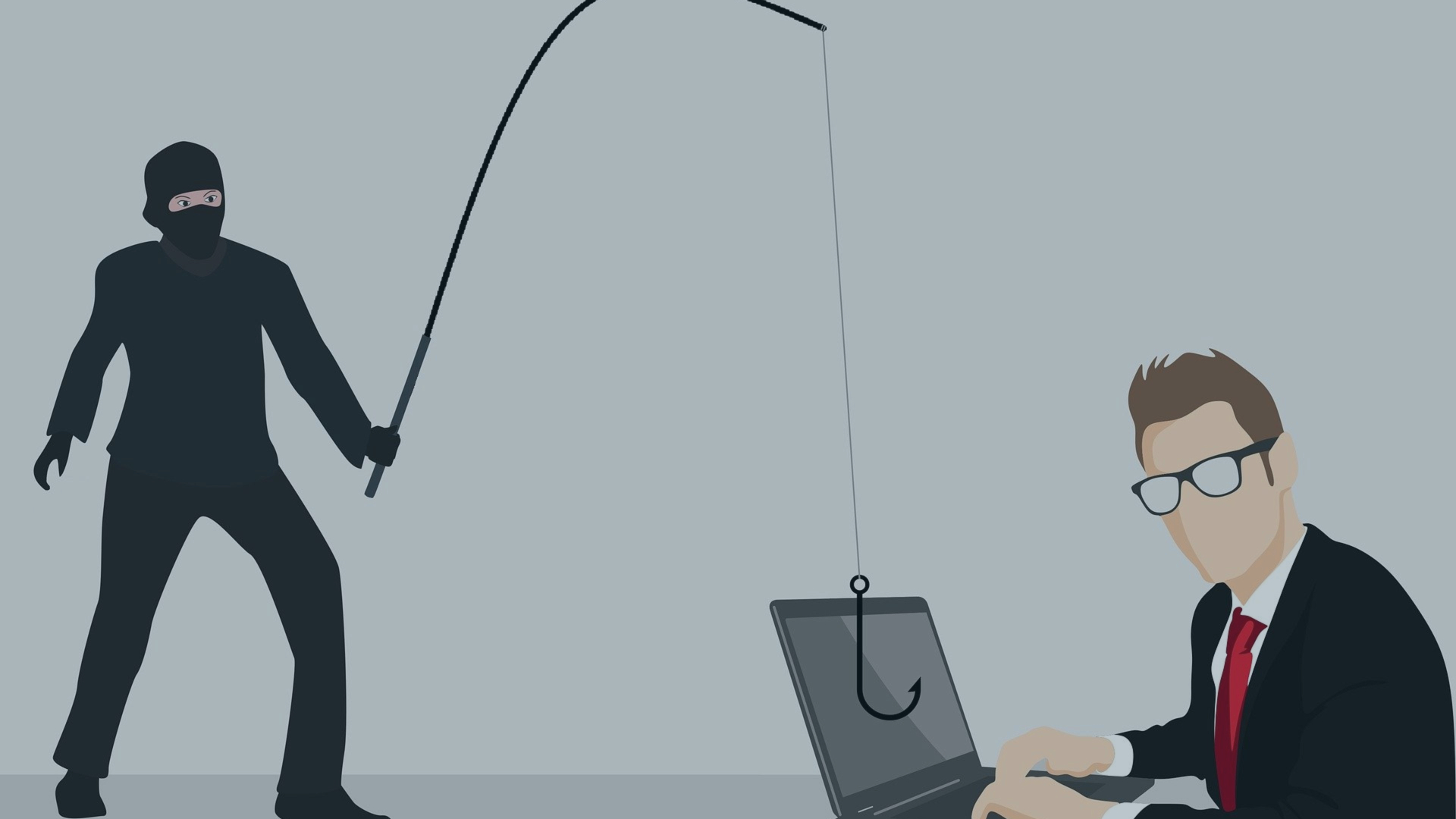When it comes to trading on the financial market, nothing is as accessible as Forex. Today, thousands upon thousands of people are finding it easier to get into trading, and we’re talking about people who otherwise may not even have considered doing so in the past. A huge part of the reason for the above is the fact that there are now so many Forex brokers around. With so much diversity of choice and so much competition between these brokers, they themselves are now forced to up the ante when it comes to providing their service, and providing it in a unique and different manner, while simultaneously providing as many benefits to the clients as possible.
While this is great and all, it also comes with quite a bit of danger. The thing is, with so many new brokers coming around, there is always a risk of meeting difficulties when it comes to choosing a good broker for you. You have to consider many different things at the same time, and among these things, safety is the number one, and as mentioned, there are many brokers who may, on the surface, seem safe and trustworthy, but turn out to be completely different.
This is exactly why we wrote this guide, because, considering the seriousness of this issue, it is very important that the traders are adequately informed about specific matters pertaining to safety and security when it comes to choosing the right broker, as well as identifying some of the red flags when it comes to the service of these brokers. Today, you will learn how to identify and avoid the ever-increasing number of scams and fraud in the financial market. By the end of reading this, you will have a solid understanding of how to keep yourself safe, and how to know exactly which brokers you can and can not trust. So, let’s dive straight into it!
Scams in Forex – addressing the elephant in the room
We will not spend a lot of time singing the praises of Forex and its merits. After all, it’s the biggest and most popular financial market in the world for a reason. However, it is undeniable, that it has, for a very long time now, been plagued by the issue of scams and fraud. This has been such a prevalent and major issue for such a long time now, that it has completely scared many potential traders away, and has broken the hearts – or, rather, the wallets – of many traders who were already involved in trading.
This has been going on for many years now, and it has gotten so bad, that many governments and their respective financial regulators had to take some really massive action, some of which meant completely redesigning their regulatory framework and coming up with some draconic measures, which, although was a necessary evil at the time, had a side effect of discouraging, and interfering with, some of the brokers that were actually legitimate, with no bad intentions.
It should be mentioned, that since then, the situation has definitely improved, and much of the scams and fraud that were plaguing in the Forex trading market are now much less prevalent; or, if not, it is now much easier to avoid them, at the very least. However, it would be foolish to assume that they’re gone completely. Saying so would be completely false, as these scams are still very much there, and there are thousands of people getting scammed every single year. While this does paint a bit of a grim picture, fortunately, most of these scams can actually be avoided, provided one follows some of the basic guidelines and rules of safe conduct for the financial market. This is precisely what we’ll be  discussing below, in the form of specific guidelines and rules that you will need to implement as your standard procedure.
discussing below, in the form of specific guidelines and rules that you will need to implement as your standard procedure.
How to identify and steer clear from the Forex scams
Considering the complex and dynamic nature of Forex trading, there are many different things to take into account when we’re talking about identifying and avoiding Forex scams. However, as you may probably expect, a bulk of this discussion would be centered towards the brokers themselves, and what are some of the red flags that the would-be scammer brokers may possibly display. After you learn how to examine this information and utilize it, pretty much the half of the job is already done, and you will be well on your way to ensuring a safe and secure trading experience for yourself. So, without further ado, let’s discuss some of these possible red flags that your broker may have.
Make sure that the broker is licensed
When it comes to choosing your Forex broker, one of the most important things to consider is their licensing and regulation. This is even more so the case if your priority is safety and security. We will go as far as to say that unless a broker is licensed by respected and well-established authorities, then absolutely no discussion of safety and security is warranted, at all. In general, the financial regulators are pretty much the only thing that more-or-less guarantees the reasonable and fair conduct of the broker.
With this considered, it is absolutely mind-blowing that we see so many cases of people going with brokers that are unlicensed. By unlicensed, we mean the brokers that are not under any kind of a regulatory grasp of any kind of a regulator, no matter who they are and where they are. Logically thinking, it makes no sense whatsoever to expect your safety and well-being, because there is no oversight to guarantee it.
As such, it is extremely important to not only make sure that your would-be broker is licensed, but that they’re licensed by established, highly-respected authorities that have been operating for many years, and have a proven track record of providing the traders with a safe trading environment.
 To give you an example, if a broker is licensed with an established and widely-known regulators such as FCA (Financial Conduct Authority) of the UK, or CySEC (Cyprus Securities and Exchange Commission), then this is already a good start. These regulators have been around for a very long time now, and over the course of their existence, they have demonstrated what it takes to build a strong, reliable, and safe environment for all traders. When dealing with a broker licensed with these regulators, you can be absolutely sure of your safety and security.
To give you an example, if a broker is licensed with an established and widely-known regulators such as FCA (Financial Conduct Authority) of the UK, or CySEC (Cyprus Securities and Exchange Commission), then this is already a good start. These regulators have been around for a very long time now, and over the course of their existence, they have demonstrated what it takes to build a strong, reliable, and safe environment for all traders. When dealing with a broker licensed with these regulators, you can be absolutely sure of your safety and security.
To wrap this section up, when you’re considering dealing with any Forex broker, make sure to go to their license and regulation section, and check which exact regulator they’re registered with. Even after doing so, make sure to actually check their registration details, and look them up on the respective regulator’s website. Anyone can display the logo and information of a regulator on the website, but only the truly licensed ones have the registration number. In closing, here are some of the highly-respected regulators that are held in high regard for their trustworthiness and reliability:
- The Financial Conduct Authority (FCA) of the United Kingdom;
- The Cyprus Securities and Exchange Commission (CySEC);
- The Australian Securities and Investments Commission (ASIC);
- The Financial Sector Conduct Authority (FSCA) of South Africa;
Of course, this was a shortlist of the regulators. This does in no way imply that these are the only regulators that you should look for. Rather, these are the regulators that you can, and should, use as a frame of comparison. You can check the detailed information on each of these regulators, how they work, and what are their respective individual policies and practices in our regulations section, right on this website!
Examine the broker’s behavior and their approach to customer service
When it comes to establishing the trustworthiness of a broker, nothing speaks volumes as much as the broker’s approach to customer service, and how far they’re willing to go to help you out. In this business, where everything can change dramatically in a matter of seconds, it is very important to ensure that you have a good support mechanism in the form of your broker’s customer service and that you’re able to receive help when needed.
In contrast to the above, most of the unreliable brokers are severely lacking when it comes to providing acceptable customer service, and they don’t even have much of the mediums of communication for you to reach them and get help in the first place. Although this is a generalization, it’s brokers like these that you should feel free to distrust right away. Although there are exceptions to this, usually, if a broker doesn’t do everything in their power to make communicating with them as easy and convenient as possible, then you have no reason to trust them.
Although, as mentioned, there are exceptions to this, as even some of the biggest brokers on the market offer limited methods for communication, with many of them offering nothing more than an online ticket system and online chat. In contrast to this, if your broker offers you the telephone number for communication, then that is the whole different story, giving you much more accessibility and safety. Though obviously, a would-be scammer could also be offering telephone communication, and this doesn’t necessarily mean that this is the only thing you should be looking out for.
To expand on this point and look at it from a different perspective, a broker may communicate with you over the phone, and there, it may discuss some of the possible expectations that you may have regarding their service. In particular, they may give you some specific promises as to how much profit you may possibly make, among many other things. It’s very important to be very vigilant at times like these because it would be extremely rare that a legitimate broker would give you any promises as to the possible profitability. In general, the representatives of the brokerages are discouraged – often even prohibited – from making any kind of promises to the traders. As such, the next time a representative of a broker is painting the pictures of sunshine and rainbows, make sure to snap out of it and examine the situation with an objective and rational lens!
Look at their platform and website
 Now, this particular point is more on the superficial and surface-level side but still is quite important. In this day and age, with the website and app development being so far ahead, there is absolutely no excuse for a legitimate company to not have a professional, well-designed, and highly-functional platform.
Now, this particular point is more on the superficial and surface-level side but still is quite important. In this day and age, with the website and app development being so far ahead, there is absolutely no excuse for a legitimate company to not have a professional, well-designed, and highly-functional platform.
The brokers in general – at least the good and legitimate ones – spend a lot of time, money, and energy for making sure that their platforms stand out, and are looking and feeling better than their competition. When, in contrast, you see that your broker’s website looks like something from 10 years ago made by some amateur that doesn’t know what they’re doing, this should already be a red flag. Arguably, it is not even enough for a broker to just have a nice website. Rather, they should also offer a decent, well-functioning application as well, for other devices such as mobile phones and tablets. This is not an unreasonable request, as this is something that is industry-standard at this point.
Now, looking at the same coin from a different perspective, we would also like to mention, that there indeed are some brokers who, when looking at their website, do not seem all that fancy. In fact, some of them keep using the same website platform that they had over 10 years ago. Regardless of this, they still are able to offer decent service, with most of their clients being happy, with no complaints in regards to their safety and security. Again, it all is a matter of perspective. With cases like these, it is important to conduct the appropriate research, and if a broker is lacking in this department, then you have to make sure that they’re adequately satisfying some of the other requirements that we have listed in this section.
Look at other peoples’ experience
One of the main advantages of the internet and online community when it comes to trading on the financial market is the benefit of sharing our experiences and opinions with each other. If you imagine that there was no internet and no online communities where we could share our experiences and opinions, then it would, by far, be much more difficult to navigate your way around all the possible dangers of the financial market.
Luckily, in this day and age, you have the benefit of the online communities, and all the experience and feedback they share with each other. Nowadays, it takes just one google search to find relevant information online regarding thousands of different products and services. Of course, among these services, can be the Forex brokers as well. We all know that conducting tons and tons of research to find relevant information is a tedious and time-consuming process, but when you have the reassurance and clarification one google search away, you really have no excuse to make appropriate research.
Considering this, make sure to always look around at what other people are saying online. Reviews and feedback left on various websites can be a good source for this, but albeit should also be taken with a grain of salt, considering the fact that anyone can submit a review online, and their trustworthiness is not at all established in many cases. On the other hand, sometimes it’ll be the traders themselves who would leave a negative review solely based on the fact that they have lost their money due to bad decisions, and would rather blame it on the broker. The latter, however, isn’t of course applicable to ALL the cases, but should instead be viewed as a possibility. That aside, when you see that a broker has dozens of reviews with all of them claiming that they’re not returning the clients’ funds back, then this should already be the one and only red flag you’re ever going to need.
If it sounds too good to be true, then it probably is
Last but not least, we would like you to look at all of this from a different perspective. Let’s just say that a would-be broker has a decent-looking website and platform, a friendly and seemingly-supportive customer service, and has some amazing reviews online. With such a broker, passing the “eye test” should be a piece of cake, and you would have more-or-less positive expectations.
Then, on top of this, you may see, that the broker would be offering you some truly amazing opportunities, with them stating some outrageous win ratios, as well as bonuses that you can’t even dream of getting anywhere else. While due to the factors mentioned above, you might feel compelled to trust the broker here, it is here that you will need to practice as much caution as possible. In life, if something sounds too good to be true, it generally is. This, however, is even more so the case in this business of financial trading.
With such a large diversity of brokers offering their service to the traders, it becomes increasingly more difficult for them to offer something unique, something that you can’t get anywhere else. Considering this, when you see a broker making these outrageous claims and painting the visions of sunshine and rainbows, you should probably understand why they can not be trusted. The point here is that as cliche as it may sound, make sure that you’re thinking with your head here, not your heart. When you’re presented with some kind of an offer from a broker, whether that be something

pertaining to their service or anything else, make sure that you’re objectively assessing it a likelihood, rather than accepting it solely based on the fact that you want it to be the truth.
What to do if you get scammed
Now, what if you got unlucky and the scammers got a hold of you before you had all the information listed above? Or, maybe you DID have all this information, but through some shape or form, they still got the best of you, and you were the victim of a scam? Let’s talk about what should you can, and should, do.
Don’t get too emotionally invested into it, and try to move on
First and foremost, you should consciously make sure that you’re not worrying too much about it. Painful and annoying as it may be – and in some cases, it really is, considering the amount of money that people lose – there is absolutely no amount of worrying and lamenting you can do to get your money back. Rather, you should look at the way forward, and what you can do from that point on. Ultimately, you have to realize that you are not the first person in the world to get scammed as a Forex trader, and you definitely won’t be the last.
Try to ask for help from your bank or credit company
In some cases, something as simple as giving your bank a call may be something that can save you. If the scammer took your money via your credit card, or by using some other card-charging service such as PayPal, then there is still hope. Simply explain the situation to your bank, and depending on how exactly it all went, you may get your money back.
However, it warrants a mention that this may not be applicable in a very large number of cases, considering the fact that many of these scammers purposely go with payment methods that can not be reversed. This refers to methods such as Bank Wire Transfers, Bitcoin payments, and more. With the payment methods such as this, once the money is out, it’s out for good, and your bank will not be able to help you. On a side note, a broker’s insistence to have you pay with these kinds of methods while providing you with no credible reason as to why you can’t use your credit card should be one of the red flags that you should see from a mile.
Learn from your mistakes
Last but not least, the best thing to do if you are a victim of a Forex scam is to make sure that you learn from it. As mentioned, grieving about the money that you lost will not bring it back, and will only put you in a negative mind-state, bringing nothing positive, and may possibly even make it worse by making you obsess over “getting it back”, thus exposing you to more possible scams.
As the saying goes, “Fool me once, shame on you. Fool me twice, shame on me”. This applies here more than anywhere else, and thus, it is important to make sure that you’re using this as an opportunity to learn. What did you notice when dealing with the broker that, although it may not have felt so at the time, now seems to be out of place, in retrospect? Did they give you unreasonable expectations of how much profit you can make? Did they fail to adequately describe and define their license and regulatory specifics? Or, did they perhaps avoid mentioning this subject at all? Did they reach out to you themselves in the first place, in an unsolicited manner? All of these things, while unfortunate, can serve as a lesson, and help you save a lot of money down the line. If you get scammed, there is absolutely no reason for you to get scammed again, provided you take away important lessons.
 The bottom line
The bottom line
Forex trading, while it has its amazing benefits of accessibility. convenience and ease-of-entry have for many years had some serious issues with scam and fraud, which to a level still persist today. Although the situation has improved in exponential ways, the issues are still very much there, and anyone who wishes to stay safe and secure when trading on the Forex market needs to practice their due diligence.
This means educating oneself on the specifics of keeping themselves safe when trading on the financial market, as well as all other important details relating to their safety and security. One of the key aspects of this is getting familiar with the regulatory specifics of different Forex brokers and their respective regulators. Are you aware of the laws and regulations that are in place for your protection, and exactly how they work? Where we’re getting at is that from now on, you need to actively make sure that you’re looking into things like these. This means doing your homework on the broker and the regulator that is supervising them.
Last but not least, as we mentioned, getting scammed in Forex is not the end of the world. You were not the first, nor will you be the last, person to get scammed in Forex. The important thing is what you do afterward, namely taking preventive measures to make sure that it won’t happen again. With all this new-found knowledge, you will now be much more well-equipped to keep yourself safe on the financial market, by preventing these scams from happening in the first place.

